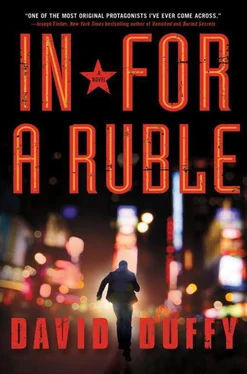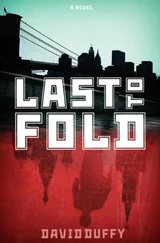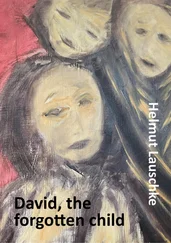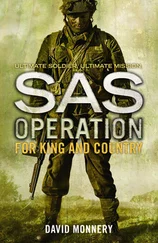“You’ve read my file,” I said.
“I was actually more interested in the earlier part of the file—what happened before the Cheka.”
I didn’t answer. Alarm bells were ringing too loudly in my head. The early part of my file was totally bland and uninformative—Iakov had made sure of that. It was called a clean passport, my Gulag past had been expunged from the record. A former zek was a zek no more and could hold his head high without fear of shame or spurning or repulsion. Or that was the intention. But somehow Nosferatu had learned the truth. Now Batkin was making a similar implication. Or was I just paranoid?
“I’m not sure I follow,” I said as flatly as I could.
“Of course you do. My file reads the same, almost exactly the same, word for word.”
He took off his jacket and hung it carefully over the back of a chair. He undid a cufflink and rolled up the blue-gray sleeve. The arm was covered in tattoos in Cyrillic script.
“Vyatlag.”
He let that sleeve go and undid the other. More tattoos, different images and words.
“Gorlag. We were all in the same boat. Where were you, not that it makes any real difference?”
I felt like I’d been punched—knocked flat. Gobsmacked, as the Brits say, a term that doesn’t translate, but somehow does. Batkin watched as I tried to clear my head. He’d thrown a calculated blow and hit—maybe harder than he knew. The surprise wasn’t his background, but the ease with which he admitted it. I don’t have the tattoos to record my time, but I could no more have owned up to Dalstroi and Vorkuta in the way he did than I could have put myself back into those state-sponsored hells-on-earth that formed my childhood.
“Surprised to meet a fellow traveler?” he said.
I nodded. The best I could do.
“There’s thousands of us. You know that.”
“But…”
“None of us talk about it? Of course. But what are we really afraid of? My Gulag upbringing is marked all over my body. No denying it. I don’t advertise it, but I don’t try to hide it either. You, on the other hand…”
I nodded again, as forcefully as I could. Probably looked feeble to him.
“None of us can move forward until we understand where we came from. When I read your file, I assumed you understood that. Your career here.”
The mention of my career here snapped me back to the present. He’d done a lot of research. He was using past and present to work me over. To what end?
He redid his cuffs. “You haven’t answered. Which camp?”
“Dalstroi… Then Vorkuta,” I said, defeated.
“Languages, that’s what Iakov saw?”
“That’s right.”
“He had an eye for talent. Mine’s organization. I organized the zeks at Gorlag, there were thousands more of us than the guards, who by that time were totally demoralized. We—the zeks, I mean—were about the only thing working in the Soviet economy. We deserved a little better than nothing. I made people think about their worth. We organized. We struck. We shut down the camp more than once. It wasn’t easy. Some died. They would have died anyway.” He shrugged. “But we got noticed. We got results.”
I was starting to think clearly enough to replace “we” with “I” in his recounting.
“So Iakov…”
“He found me, like he found you. He launched a successful career.” He lifted his jacket off the chair, put it on, sat down and shot a gold-linked cuff to underscore the point. He’d also finished bonding.
“Tell me about Irina. What did you want from her?”
I answered, it was the easiest thing to do. “My interest was her boyfriend’s uncle. If you want an apology, I’m sorry.”
I wasn’t sorry in the slightest, she could more than take care of herself, but it seemed the diplomatic thing to say, and I was looking to reestablish equilibrium in the conversation.
“I’m sure you said nothing untoward,” he said, also the diplomat. “Irina can be a difficult girl. She’s had a difficult childhood. Her father is a difficult man. She bore the brunt of that, while she was growing up. One reason she lives here now, with her mother and me.”
I didn’t point out she wasn’t exactly living with her mother and him, and I was having a difficult time with the repeated use of the word “difficult.” Too easy. It conveyed trouble without telling anything of its nature. Unsure of where to go next, I waited.
“I came here to ask for your help,” he said after a moment.
That couldn’t be good, but… maybe…
“Irina is up to something, involved in something, I don’t know which or what. It may involve this boy, again, I don’t know. Her mother is worried. So am I.”
Buy time. “Have you asked her—if anything is wrong, I mean?”
“Of course. Both her mother and I talked to her over the Christmas holiday, before she went to Moscow to see her father. She kept us at arm’s length. As you pointed out, she’s learned the art of prevarication. She may not be as good at it as she thinks—you’re right about that too—but she’s practicing.”
I almost said, Every chance she gets and maybe for good reason. Instead I waited some more.
He waited too.
Then he said, “I’m very fond of the girl. If I had a daughter, I’d like her to be… I’m more than fond of her mother. But what you say is true. She’s gone off the road somewhere, and we are both worried—her mother and I—that she could be going to a dangerous place. You know who her father is?”
I nodded. He sounded every inch the concerned parent, but the calculated assault of the last few minutes undermined that.
“You want me to find out what she’s involved in?”
“That’s right.”
Buy more time.
“Suppose I already have a client?”
“Does his interest conflict with mine—or hers?”
“It could.”
“You have obligations. On the day that your first client’s interests come into conflict with mine, I release you. Will that do?”
Ever the diplomat. Except that wasn’t where he came from. His tattoos said he was Gulag urki —the criminal class. He was also a Chekist. If—or when—his interests and Leitz’s, or anyone else’s, came into conflict, another solution would be found. But that would happen regardless of what I said. And, I was coming to realize, he was in a position to help me in a way perhaps no other person could.
“Let’s talk compensation,” I said.
“I am a wealthy man. I will pay what you require, within reason.”
“I don’t want money. I want information. Or, more accurately, unfettered access to information.”
“I’m not sure I understand.”
I told him what I had in mind.
When I finished, he walked around the conference room looking at the view, looking back into the office, looking at me.
“I understand what Iakov saw,” he said. “That is a most finely tuned proposal. What, I must ask, makes you think I’m in a position to deliver—or that I won’t cross you?”
“You can deliver. I haven’t lived in Moscow for twenty years, but the way things work hasn’t changed that much. We’re both Chekists. We understand each other. I won’t give you reason to cross me. I know what will happen if I do. If you cross me, you can count on my tracking you down, carrying that Desert Eagle.”
He smiled broadly, for the first time since he arrived, and extended a hand.
“I believe you,” he said.
I took the hand. I didn’t believe him. Not about anything he said.
Beria appeared by the window, smiling.
Victoria said, “You have no idea how difficult this is for me.”
Читать дальше












